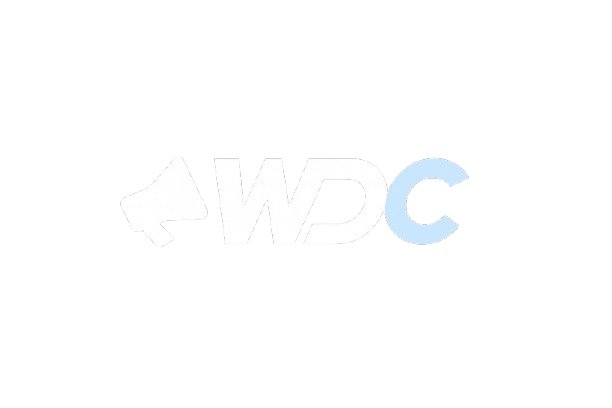In 2026, SEO success isn’t just about keywords—it’s about strategic, consistent, and data-driven content creation. And nothing helps achieve this better than a well-planned content calendar.
For businesses aiming to dominate search rankings and keep audiences engaged, a content calendar is more than just a schedule—it’s the blueprint for delivering relevant, timely, and high-performing content. At WDC (Web Development Company), we’ve seen first-hand how businesses that embrace structured content planning experience higher organic traffic, stronger brand authority, and better conversion rates.
In this guide, we’ll show you exactly how to create a content calendar that boosts SEO in 2026—step-by-step.
1. Understand Why a Content Calendar Matters for SEO
A content calendar is not just about organization—it’s about strategic publishing. Here’s why it’s essential for SEO:
- Consistency: Search engines reward websites that publish regularly.
- Topical Authority: A calendar helps you cover topics comprehensively, boosting your expertise in your niche.
- Keyword Targeting: It allows you to strategically plan posts around primary and secondary keywords.
- Seasonal Relevance: You can align content with trends, holidays, and industry events.
At WDC, we’ve found that businesses with well-structured calendars rank for 3x more keywords compared to those without one.
2. Set Clear SEO Goals for Your Calendar
Before you create your calendar, define your SEO objectives:
- Do you want to rank for specific high-value keywords?
- Are you targeting local search traffic (e.g., “SEO services in Dubai Marina”)?
- Do you aim to increase backlinks through share-worthy content?
Your goals will guide the type of content you create. For example:
- Traffic Growth Goal: Publish keyword-rich blog posts twice a week.
- Brand Authority Goal: Publish expert guides and industry insights.
- Conversion Goal: Create content that addresses buying intent, such as comparison articles or case studies.
3. Perform Advanced Keyword Research
Keyword research is the backbone of any SEO-driven calendar. In 2026, AI tools and Google’s evolving algorithms mean you must go beyond generic keywords.
Steps to refine your keyword list:
- Use tools like Ahrefs, SEMrush, and Google Keyword Planner.
- Focus on long-tail keywords that target specific user intent.
- Identify content gaps by analyzing competitors.
- Include local keywords for location-based targeting.
At WDC, our SEO team integrates keyword research directly into our content planning tools so every article is optimized before it’s even written.
4. Choose the Right Content Types
Not all content formats perform the same for SEO. In 2026, variety is key. Consider including:
- Long-Form Blog Posts: Great for ranking on competitive keywords.
- How-To Guides & Tutorials: Attract backlinks and shares.
- Listicles: Easy to read and highly shareable.
- Case Studies: Build authority and trust.
- Video Content: Increases dwell time and engagement.
- Infographics: Boosts link-building opportunities.
5. Map Content to the Buyer’s Journey
Your content calendar should guide users from awareness to conversion.
- Awareness Stage: Publish educational blogs, trend reports, and industry news.
- Consideration Stage: Share comparison articles, detailed guides, and webinars.
- Decision Stage: Publish testimonials, case studies, and product demos.
For example, WDC often plans a three-step content series: an informative blog → a deep-dive case study → a free trial or consultation offer.
6. Use an SEO-Optimized Calendar Template
A good content calendar should include:
- Publish Date
- Topic / Title
- Target Keyword
- Search Intent
- Content Type
- Author / Team Responsible
- Status (Draft, Review, Published)
- Internal Linking Plan
You can create this in Google Sheets, Trello, Asana, or Notion. At WDC, we prefer Notion because it integrates SEO checklists, keyword databases, and editorial workflows in one place.
7. Plan Internal Linking and SEO Elements in Advance
Internal linking is a ranking powerhouse in 2026. Instead of adding links after publishing, plan them in your calendar:
- Link new posts to older high-performing pages.
- Use keyword-rich anchor text.
- Keep links relevant and natural.
Also, prepare your SEO essentials ahead of time:
- Meta titles & descriptions
- Image alt texts
- URL structure
- Schema markup (structured data)
8. Track Performance and Refine Your Calendar
Your content calendar is a living document—it should evolve based on results.
Track metrics like:
- Organic traffic growth
- Keyword rankings
- Backlinks earned
- Engagement metrics (bounce rate, time on page)
- Conversion rate from organic traffic
At WDC, we review content calendars every quarter to adjust topics, optimize old posts, and align with Google’s latest updates.
9. Stay Ahead with 2026 SEO Trends
To make your content calendar future-proof, keep these 2026 trends in mind:
- AI-Generated Content Assistance: Use AI tools for ideas, but always human-edit for quality.
- Voice Search Optimization: Plan content with conversational queries in mind.
- Video-First SEO: Integrate YouTube and short-form videos into your calendar.
- E-E-A-T Focus: Build Expertise, Experience, Authoritativeness, and Trust in every post.
Conclusion
A well-structured content calendar is the backbone of SEO success in 2026. It ensures you publish high-quality, keyword-rich, and user-focused content consistently—while aligning with Google’s latest ranking factors.
At WDC (Web Development Company), we specialize in helping businesses design SEO-driven content calendars that not only rank but also convert. With the right strategy in place, your content will work harder, reach further, and deliver measurable results.
FAQs
1. How often should I post content for SEO in 2026?
Consistency is more important than volume. For most businesses, publishing 1–3 high-quality posts per week is ideal for steady growth.
2. Should my content calendar include old content updates?
Yes! Updating existing posts can significantly improve rankings, especially for keywords that have slipped in performance.
3. Can AI create my content calendar?
AI can help generate ideas and organize schedules, but human expertise is essential for keyword targeting, tone, and accuracy.
4. How far in advance should I plan my calendar?
Ideally, plan 3–6 months ahead while keeping flexibility for trending topics.
5. Can WDC help build and manage my content calendar?
Absolutely. At WDC, we offer tailored SEO and content planning services to ensure your business stays ahead in search rankings.

